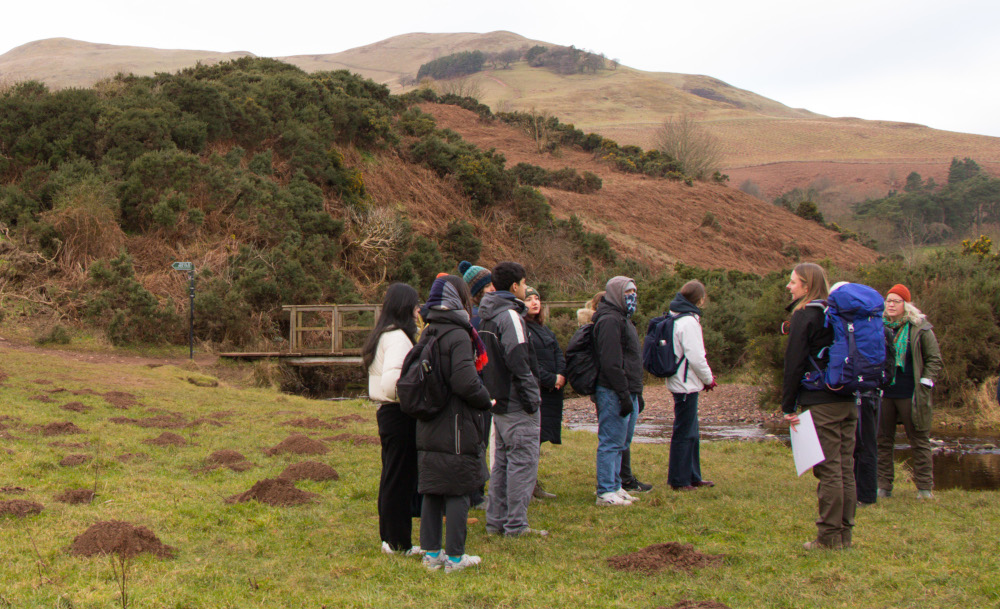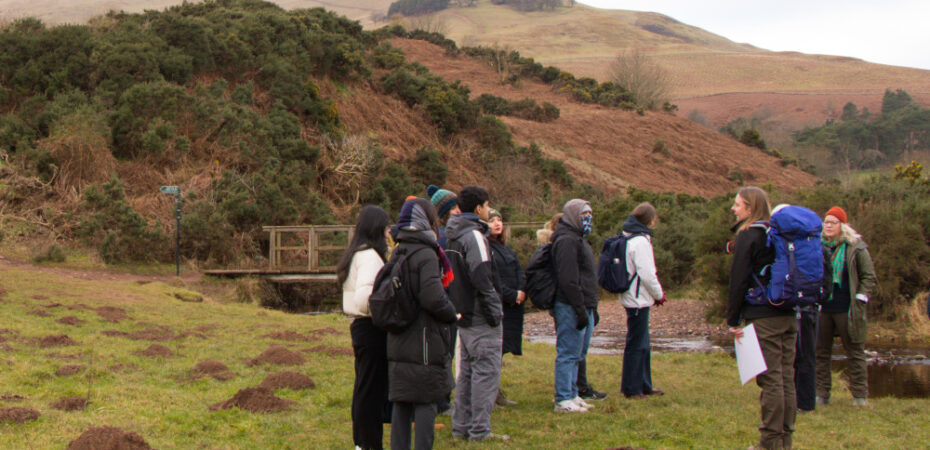
In this extra post, Lucy Patterson explains how making connections in teaching with nature, community and between disciplines through the lens of climate crisis can offer new learning and teaching opportunities for students in today’s complex and dynamic world. Lucy is the University’s Climate and Sustainability Curriculum Coordinator.
As the University’s ‘Skills for Success Framework‘ seeks to give students the skills needed to thrive in a changing world, creating connections in teaching with nature, community and other disciplines through the lens of the climate crisis can offer new opportunities to achieve our vision for curriculum.
Simultaneously empowering students to thrive in the immediate and the future career landscape, requires development of skills that enable them to make and leverage connections with key stakeholders. In the context of the climate crisis three of these main stakeholders can be seen as:
- Nature as the stakeholder that will be delivering change;
- Community as the stakeholder that will be impacted and adapt to change;
- And academic disciplines as the stakeholder(s) who will be managing the change.
It’s inevitable that the climate crisis will be a process that influences the future direction of all careers so embedding these three connections in degree programs could give students a chance to familiarise with these skills in the context of climate and their discipline before graduation.
Connection between disciplines
Mitigating and adapting to climate change poses many wicked problems that require collaboration of different disciplinary experts to solve. Interdisciplinary learning such as that shown in Jasmeen’s resource connects students with concepts outside of their discipline to develop the skills of collaboration and systems thinking in our graduates who will become these experts.
“At Data Education in Schools, we have developed a board game to teach secondary school pupils (and tertiary education students and above!) about sustainability of AI systems, including managing the high water, power, and labour needs of these systems.”
– Jasmeen Kanwal, Data Education in Schools, Project Officer
Connection with community and place
Communities and places globally and locally that our graduates interact with will be impacted by climate change. Inquiry based learning with community and place such as that practiced by heritage collections connects students with lived experience and insights to develop the skills of normativity and critical thinking in our graduates who may need to adapt how they interact due to climate change.
“Heritage Collections collect and document the University’s cultural past, present and future. We have items for use in teaching that speak about our relationships with the natural world, with matters of climate and sustainability and with our colonial past and how these issues reverberate through time and place.”
– Amy Cawood, Associate Director, Heritage Collections
Connection with nature
Our graduates exist within nature, the setting where climate change occurs, but separation from nature has caused people to disvalue it, leading to climate change. Nature based learning uses nature as a tool to achieve disciplinary learning outcomes such as those developed for Andrea’s workshop that connect students positively with nature as something valuable to be sustained in order to develop skills such as futures thinking and self awareness that discourage the misuse of nature.
‘The workshop seeks to reconnect participants with the natural environment through the principles of bio-design and the use of natural materials.
Objectives:
1. Introduce bio-design concepts and the benefits of natural materials.
2. Offer practical crafting experiences with eco-friendly materials.
3. Promote sustainability awareness in design and making.’– Andrea Dritschel, MSc Design for Change, ECA
All of these case studies are from staff and student members of the Teaching Climate and Sustainability Community of Practice, and will be presented as workshops at the Teaching Climate and Connection Conference. This Conference will mark two years of the community supporting staff.
The Teaching Climate through Connection conference will take place on Tuesday 24th June 2025 at ECCI. University of Edinburgh Staff and students, book your free place on our website.
 Lucy Patterson
Lucy Patterson
As Climate and Sustainability Curriculum Coordinator, Lucy supports educators across the University of Edinburgh to embed sustainability in their learning and teaching. She works across levels; directly supporting staff through a community of practice, providing learning opportunities for students with the Department for Social Responsibility and Sustainability, and advocating for strategy and systems than enable meaningful learning for sustainability.


